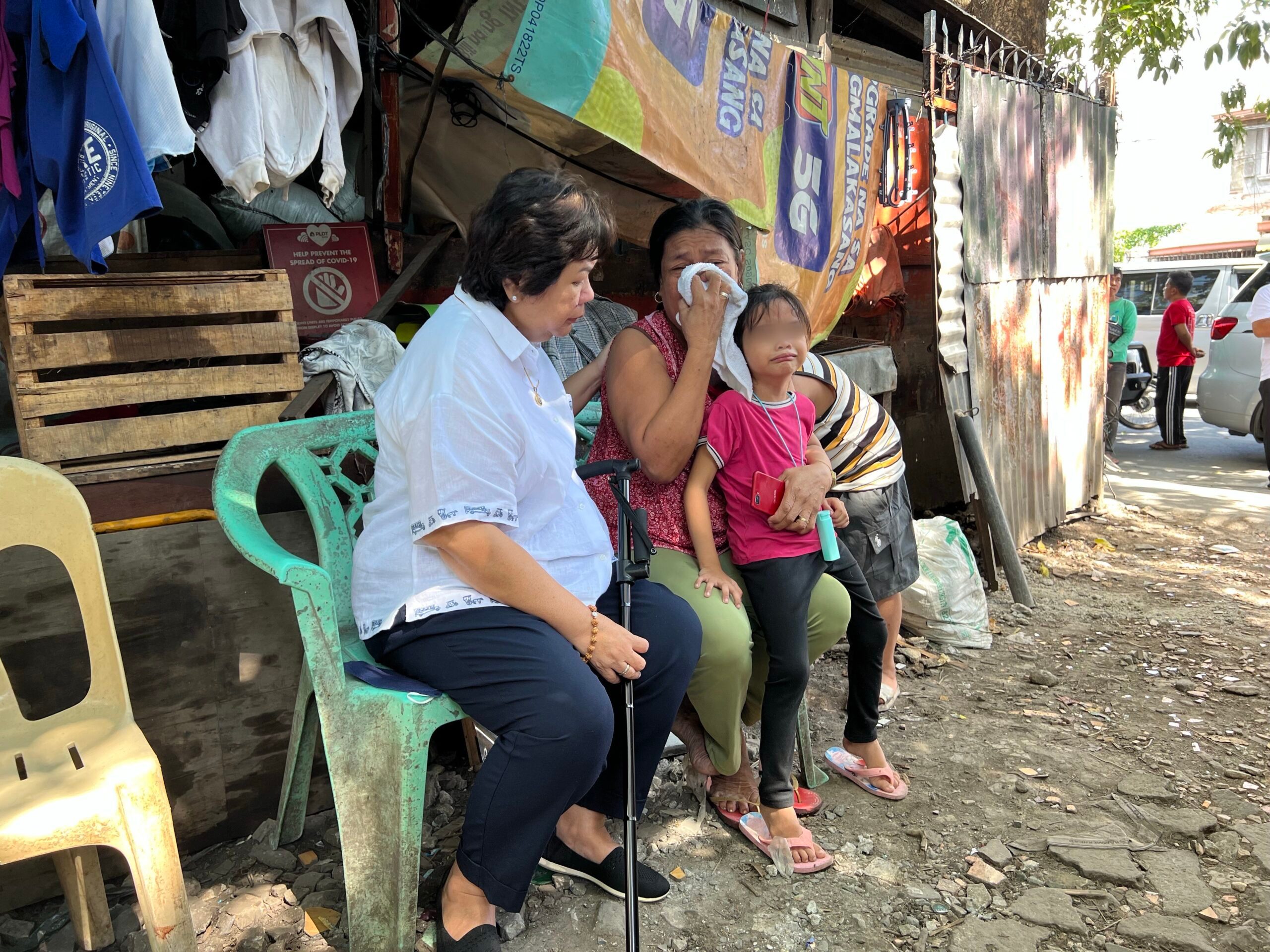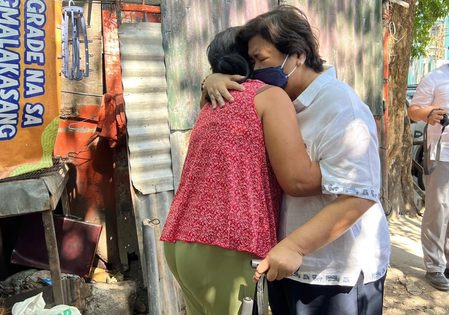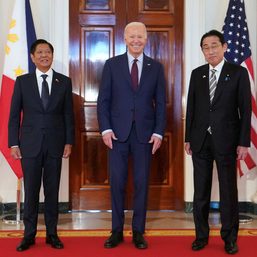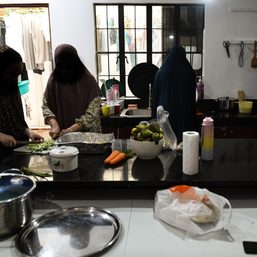SUMMARY
This is AI generated summarization, which may have errors. For context, always refer to the full article.

MANILA, Philippines – The remains of overseas Filipino worker (OFW) Jullebee Ranara, who was found dead in a desert in Kuwait, are set to return to the Philippines on Friday, January 27.
According to the Department of Foreign Affairs (DFA), the burnt remains of Ranara, a 35-year-old domestic worker, were found on Saturday, January 21. The Department of Migrant Workers (DMW) said that within 24 hours, Kuwaiti police had arrested a 17-year-old suspect, who was the son of Ranara’s employer.
Kuwaiti media reported on the incident on Sunday night, January 22. According to Kuwaiti publication Arab Times, Ranara’s autopsy report showed she was pregnant. But Migrant Workers Secretary Susan Ople said in a press briefing on Friday that she has not seen official documents pertaining to the circumstances of her death, and could not confirm if Ranara was indeed pregnant.
What is clear is that Ranara was killed, and a criminal case is being pursued, Ople said.

According to the DMW, Ranara contacted her family on Friday, January 20, expressing fears about her employer’s son. By Saturday, the family could no longer contact her. Her body was found soon after.
“Ang nakakalungkot lang, kung mayroon lang sanang mga kahit ilang araw after that ano, na nai-report sa amin ng pamilya or ng recruitment agency na may ganoon ngang nangyayari involving the son, we could have done something, or at least tried our best na ialis siya doon sa environment na iyon,” said Ople on the January 27 press briefing.
(The sad thing is, if there were only a few more days after that, where her family or recruitment agency could have reported to us that this was happening with the son, we could have done something, or at least tried our best to remove her from that environment.)
Ranara’s recruitment agency in Kuwait had “immediately” gone to the police, and was also instrumental in identifying her body, Ople said.
The DMW earlier condemned the incident and urged the Kuwaiti government to work on the early resolution of the case and to bring the perpetrators to justice.
The DFA announced on Thursday, January 26, Ranara’s repatriation. DFA Undersecretary Eduardo de Vega said that the suspect’s family agreed to pay for repatriation fees, and that the father had “no problem” funding it.
According to Ople, Ranara’s family requested for an autopsy once the remains arrive, to be performed by the National Bureau of Investigation. Preparations for a two-week wake are also underway.
On Friday, Kuwait Ambassador to the Philippines Musaed Saleh Althwaikh wrote to Ranara’s mother Norlinda Casim Cabiles to condole with their family.
“Ms. Jullebee will receive justice and the suspect will be punished accordingly,” wrote Althwaikh.
DMW Undersecretary Hans Cacdac also said that a representative from the Kuwait embassy in the Philippines visited the DMW on Thursday to express sympathies as well. The embassy official said that the incident was “met with outrage by the Kuwaiti society,” and that “no stone will be left unturned until the individuals behind this crime will be arrested and brought to justice.”
Ople said that the DMW, the DFA, and the DFA-hired lawyer have yet to further discuss how to go about the pursuit of justice, as questions remain over how Kuwaiti laws penalize minors who have committed crimes.
No deployment ban for now
On Thursday, Ople shut down calls for an OFW deployment ban to Kuwait. While the DMW “[appreciates] the good intentions behind the calls,” Ople said that social dialogue is the “all-important first step” in resolving labor migration concerns.
“It does not mean we are insensitive to such calls. It only means that for now, we wish to resort to labor diplomacy to add more safeguards and ensure that justice is pursued on behalf of Jullebee and her family,” said Ople.
The DMW said it acknowledged and appreciated the quick response of Kuwaiti authorities in Ranara’s case. They also extended assistance in facilitating the repatriation of OFWs who have been staying at shelters.
“There is a working, productive relationship between the Philippines and Kuwait that can be further enhanced not by imposing a deployment ban but by revisiting the existing Bilateral Labor Agreement (BLA),” said Ople.
A new BLA would give more protection to OFWs, she said.
In the Friday press briefing, Ople said some additional safeguards the two governments would discuss include stricter screening, accreditation, and evaluation of employers and recruitment agencies.
Ople said that the imposition of a ban would “delay” the opportunity for reforms.
“Usually, when you say you will impose a ban, the two countries will not discuss anything. But in this particular case, our priority is to have the full cooperation of the Kuwaiti government so we can, as promised to the family, advance the pursuit of justice,” said Ople in a mix of Filipino and English.
Of the 268,100 OFWs in Kuwait as of December 2022, around 73% are female domestic workers, DMW numbers show.
Cases of OFWs abused and killed in the Middle East have been a recurring national and diplomatic concern. For instance, one of the reasons why the Philippines implemented a deployment ban to Saudi Arabia in November 2021 was because of allegations of a retired general abusing several Filipino workers.
The deployment ban to Saudi Arabia was lifted in November 2022, following bilateral talks between the two governments on reforms that would better protect OFWs. These include a new Standard Employment Contract that allows Filipino domestic workers who are abused or not paid their salaries the right to pre-terminate their contracts. – with a report from Sofia Tomacruz/Rappler.com
Add a comment
How does this make you feel?














There are no comments yet. Add your comment to start the conversation.